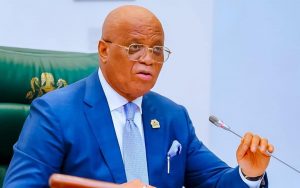Chinese government sidesteps US election question

More than 24 hours after US media declared Biden victorious, China remains one of the few major countries yet to send a message of congratulations to Biden and his team on their defeat of Donald Trump, leaving many to speculate whether officials there are waiting for the outgoing president to concede defeat.And with two months to go until Trump leaves office, Beijing may want to avoid anything that could further destabilize US-China relations.Speaking at a regular press briefing in Beijing Monday, Chinese Foreign Ministry spokesman Wang Wenbin said that China had “noted” Biden’s declaration of victory.”We understand that the outcome of the general election will be determined in accordance with the laws and procedures of the United States,” said Wang in response to CNN’s questions. “We will handle the issue of the statement (of congratulations) in accordance with international practice.”Wang did not elaborate what “international practice” might involve, especially given the large number of nations who have already congratulated Biden, including the United Kingdom, Australia, Israel, France and Germany.Beijing’s apparent unwillingness to offer a firm answer on the election result comes as Chinese state-run media exhibited a cautious optimism that a Biden presidency might help reset US-China relations, which have deteriorated markedly during Trump’s time in office.In an editorial published Sunday, state-run newspaper the China Daily said that relations could be “reset for the better,” especially on trade, where the two countries have waged a economically damaging two-year long trade war with no end in sight.”By adhering to this approach and strengthening the ballast of their trade ties, the two countries can regain the generally positive momentum that has characterized their relations over the past four decades,” the editorial said.China’s government-backed nationalist tabloid the Global Times published an editorial titled, “Drop illusions over China-US relations, but don’t give up efforts,” in which it recommended that Beijing “communicate with the Biden team as thoroughly as it can, making greater joint efforts to recover China-US relations to a state of great predictability.”However, it concluded by noting that in the end, China could rely only on itself. “China must become a country the US cannot suppress or destabilize, and make it that cooperation with China is the best option for the US to realize its national interests,” the editorial said.US China tensionsIn the last weeks of the campaign, on the trail and in debates, President Trump emphasized taking on China as an important part of his platform, hitting out at Beijing as ultimately to blame for the Covid-19 pandemic, or the “China virus” as he frequently termed it. Meanwhile, his secretary of state, Mike Pompeo, has been flitting around Asia shoring up an anti-Beijing alliance, visiting Japan, India and several other countries on China’s periphery. “America is rising to the China challenge,” Pompeo said last month, adding the ruling Chinese Communist Party is “the greatest threat to freedom and democracy today.” Analysts expect Biden to rein in this type of rhetoric and take a more pragmatic approach to Beijing, even if he may be equally suspicious of Chinese influence and growing strength as his one-time Republican rival. Speaking before the election result, Jeff Moon, an analyst and former US diplomat in China said he expected Biden to resume the “traditional practice of relying heavily on the US inter-agency community and America’s traditional allies, introducing more deliberate decision-making on US-China issues” in contrast to Trump’s often capricious policies toward Beijing.”That approach will result in a more formal and predictable pattern of bilateral engagement that will help re-set the tone of relations by stabilizing the overall US-China relationship and avoid the possibility of misunderstandings that could escalate conflict,” Moon told CNN.But he added that deeper issues will likely remain unsolved. “After decades of US-China dialogue and cooperation on the full range of bilateral issues, China has consistently refused to adopt policy changes and reforms addressing American concerns,” Moon said. “China’s formula for reset is thus unacceptable to the United States.”Speaking last month, Cui Tiankai, the Chinese ambassador to the US, said Beijing has been “firmly opposed, all along, to a new ‘Cold War’ or decoupling, and we are committed to the sound and stable growth of China-US relations.” “The China-US relationship is experiencing severe difficulties rarely seen in the past 41 years of diplomatic ties,” Cui said. “This has seriously undermined the fundamental interests of the Chinese and American people.” But the break in relations has not only been driven by Washington, for all that Trump may have accelerated it.In part, frayed ties are a result of Beijing’s own increasingly aggressive foreign policy and its military expansionism, as well as growing international dismay at the continued human rights abuses in Xinjiang, Tibet and Hong Kong. And while Beijing may hope this was merely due to the pressure of the US presidential election campaign, Biden boasted of his ability to take on China in contrast to Trump, denouncing the outgoing president for initially embracing China’s strongman leader Xi Jinping, and praising his coronavirus response. But Beijing may not feel obliged to compromise with the US under a Biden administration, especially as the risk of radical or unpredictable action is considerably lower than under Trump, who last month threatened to make China “pay a big price for what they’ve done to the world.”







